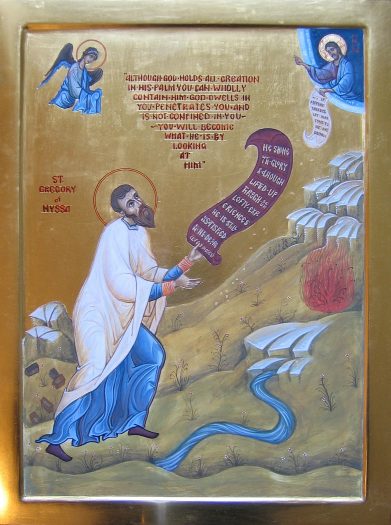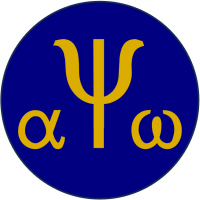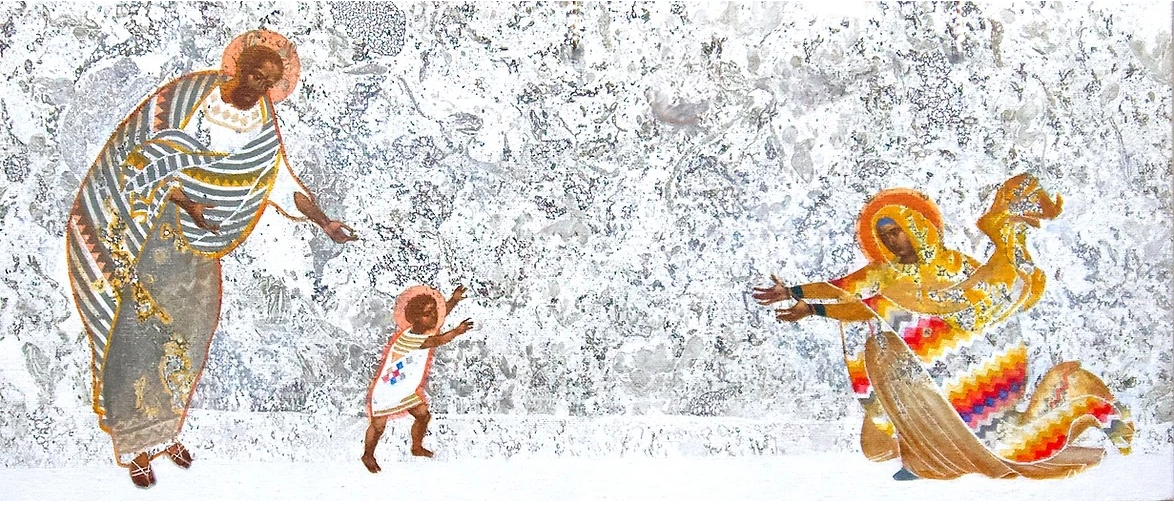
Gregory of Nyssa
St Gregory of Nyssa (c.335 – 395 AD) was the youngest of the three Cappadocian Fathers, and the brother of Basil of Caesarea. Despite receiving the least formal education of the three, his writings skilfully present the Christian faith in terms of the contemporary philosophical worldview of his day.
Worthy of special note are his “mystical” texts, such as The Life of Moses and the Commentary on the Song of Songs, which use vivid metaphors to convey a profound understanding of the spiritual life. It is on account of such texts, that some scholars have referred to him as the founder of Christian mysticism.
An important influence for Gregory was the works of Origen (the controversial third century Alexandrian Christian whose views on certain matters had by now begun to receive criticism). The writings of St Gregory owe much to Origen after (sometimes subtle, and sometimes radical) corrections in the light of 4th century orthodoxy.
Quotes from Gregory of Nyssa
I’ve compiled some of my favourite quotes from Gregory of Nyssa (primarily from “The Life of Moses” and his “Commentaries on the Song of Songs“) on some of his common themes. Click the links to read more…
Gregory of Nyssa’s Texts in Translation
Quotes and books about a person are all well and good but there’s nothing better than reading an entire text by someone to fully understand their approach.
A. J. Malherbe and E. Ferguson (translators), Gregory of Nyssa: The Life of Moses (HarperCollins, 2008)
Written towards the end of Gregory’s life, this work has been described as “perhaps his profoundest and most representative work” and provides an excellent introduction to some of his classic themes. A great choice for those new to Gregory, wanting a taste of his approach.
The Biblical story of Moses is used as a vehicle to demonstrate the perfect way of life, with Gregory seeing a deeper meaning to every aspect of the story of Moses (the plagues on Egypt, the Exodus, crossing the Red Sea, and especially the ascent of Mt Sinai into the darkness where God dwells…). Gregory’s interpretation covers morality, mysticism and theological insight, all intertwined in one single text.
This particular edition is a modern translation, with a very scholarly introduction and notes (if you’re not that way inclined, skip these bits and get straight into the text). Highly recommended.
P. Schaff and H. Wace (editors), The Nicene and Post-Nicene Fathers of the Christian Church: Second Series, Volume 5: Gregory of Nyssa: Dogmatic Treatises, etc
This one volume contains a large selection of Gregory’s writings, making it a very good “one stop shop”. The major drawback is that these translations are not always light reading, due to the Victorian language employed. But still well worth obtaining and commonly available second hand. Alternatively, view, download and print the texts for FREE! See the CCEL website.
E.R Hardy (editor), Christology of the Later Fathers (Louisville: Westminster John Knox Press, 1995)
Don’t be put off by the title! This book collects English translations of a number of classic works from the 4th century into one place. Included are Gregory of Nyssa’s Catechetical Oration and On Not Three Gods as well as other greats such as On the Incarnation by St Athanasius and Gregory of Nazianzus’ five Theological Orations.
H. Musurillo (editor), From Glory to Glory: Texts from Gregory of Nyssa’s Mystical Writings (New York: St. Vladimir’s Seminary Press, 2001)
This book is a compilation of inspirational excerpts from what are commonly referred to as Gregory’s “mystical” works – mostly The Life of Moses and the Commentary on the Song of Songs. There is also a valuable introduction by the renowned French scholar Jean Daniélou which nicely summarises some of Gregory’s characteristic themes. A real gem of a book.
H.C. Graef (translator), St Gregory of Nyssa: The Lord’s Prayer, the Beatitudes (New York: Paulist Press, 1953)
This book contains translations of Gregory’s two series of sermons on these two topics. Perhaps less mystical and more “practical” (whatever that means!), these works show Gregory’s familiarity with the culture and science of his day and again illustrate his ability to find graphic metaphors to convey his ideas.
R. Heine (translator), Gregory of Nyssa’s Treatise on the Inscriptions of the Psalms (Oxford: Clarendon Press, 1995)
In this text, Gregory’s purported aim is to pass comment not directly on the content of the Psalms, but rather on just the one or two line inscriptions found at the start of many of them! However, his attention to what we might be tempted to consider as an unimportant detail of the Old Testament does actually provide him with a way in to the “vision” of the book of Psalms as well. Unfortunately it appears to be ridiculously expensive from Amazon and even Abebooks.co.uk.
Richard A. Norris Jr (translator), Gregory of Nyssa: Homilies on the Song of Songs (Society of Biblical Literature, 2012)
Saving the best until last. Following a similar approach to Origen, Gregory unpacks the spiritual and mystical meaning hidden in the Old Testament book of the “Song of Songs” with some jaw-dropping results. Some of the best bits are present in From Glory to Glory (see above) but it’s really best to read the entire text rather than just the excerpts out of context. The full text of this book (by a different translator) is also available via the website below.
Resources on the Internet – Lectio-Divina.org
Richard McCambly, a Cistercian monk of St. Joseph’s Abbey in Spencer, Massachusetts has translated a significant number of Gregory’s texts (some of which are otherwise unavailable or only in expensive editions) and made them freely available online – https://www.lectio-divina.org/index.php/other-reflections/gregory-nyssa. Of particular note is his two part translation of the Commentary on the Song of Songs (which is the same text translated above by Norris but referred as the Homilies). Scholars might prefer Norris’ translation and it has the Greek text on each facing page. But for the non-specialist, it’s difficult to argue with “free”!
Books about Gregory of Nyssa
If you’re wanting to read more and the life and times of Gregory of Nyssa, here are some recommended starting points.
A. Meredith, Gregory of Nyssa (London: Routledge, 1999)
There would seem to be a lack of a one volume introduction to Gregory’s life and work in English suitable for the newcomer to Early Church studies. This book goes some way to addressing this, but does not fill the gap completely (there is only a smallish introduction to Gregory). However, it does contain some translations of representative sections of Gregory’s work.
A. Meredith, The Cappadocians (G Chapman, 1995)
This book provide a good sketch of all three of the Cappadocian Fathers – Basil of Caesarea, Gregory of Nazianzus and Gregory of Nyssa. There’s an introduction to each of them which helps you to start seeing them as real people (rather than just “two Gregories and a Basil!”) as well as an overview of some of the key texts which each of them has left behind. There’s also a valuable summary in the last chapter of “The Cappadocian achievement”. Worth checking on Abebooks.co.uk to see if you can pick up a copy secondhand.

